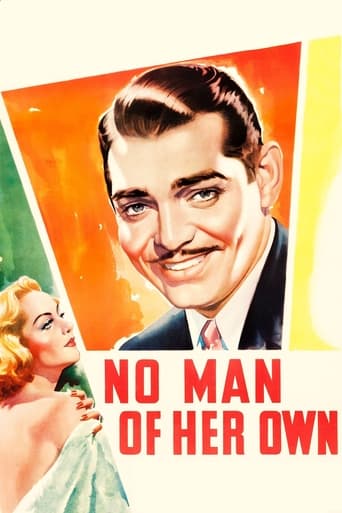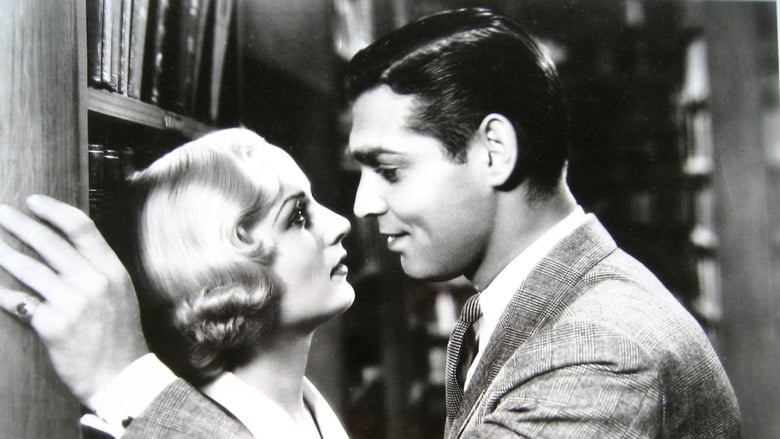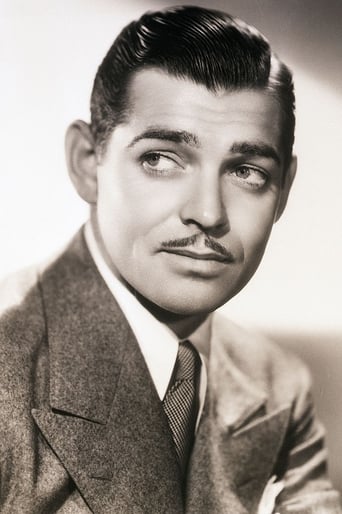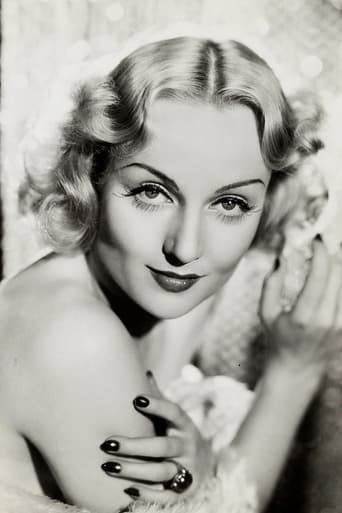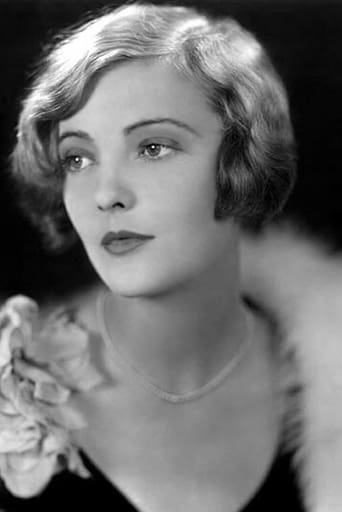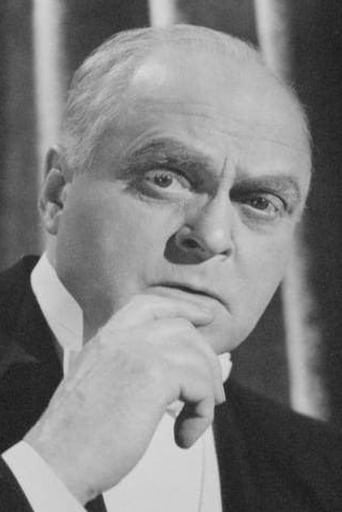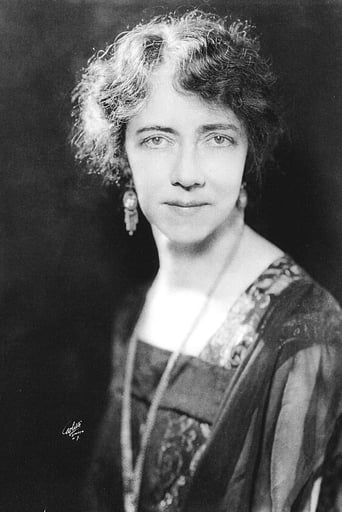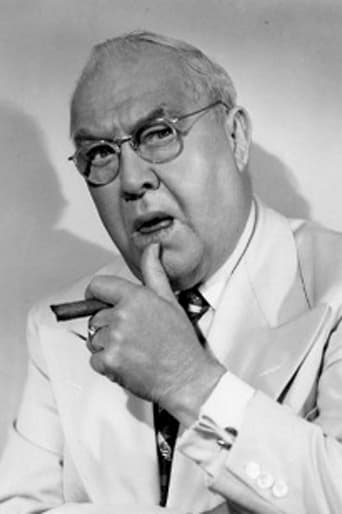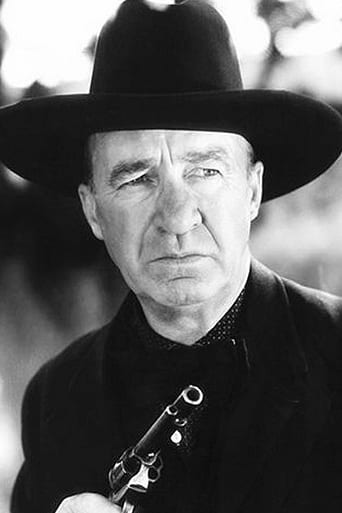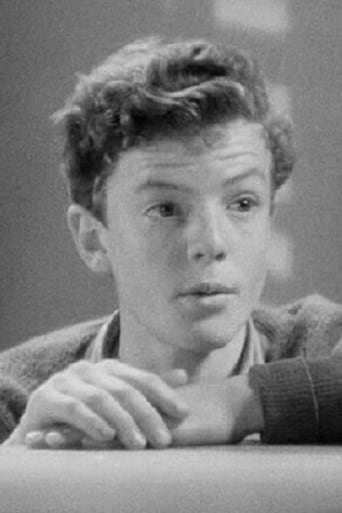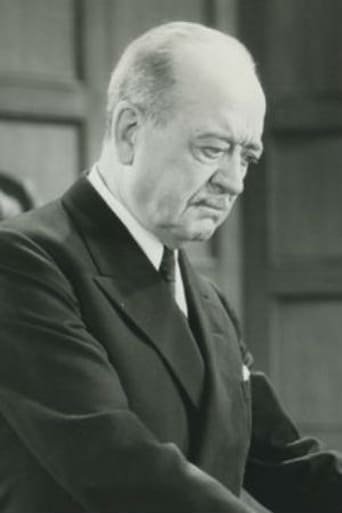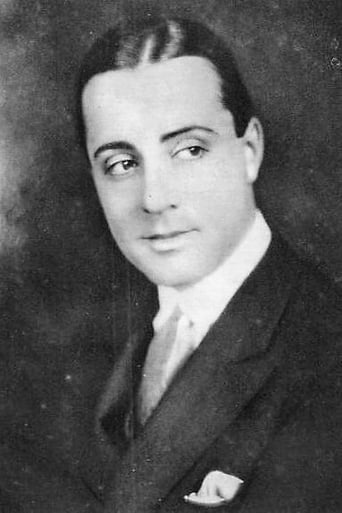An on-the-lam New York card shark marries a small-town librarian who thinks he's a businessman.


Similar titles
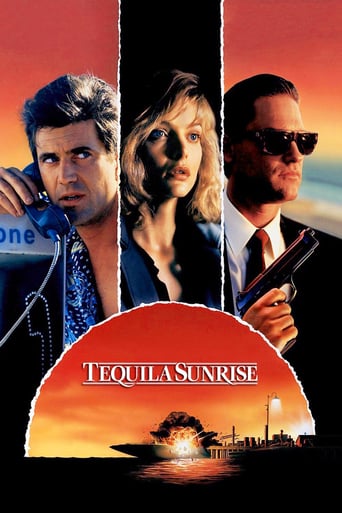
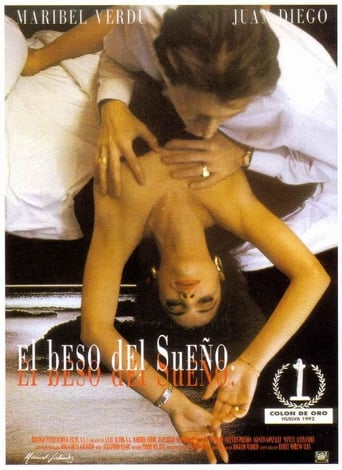
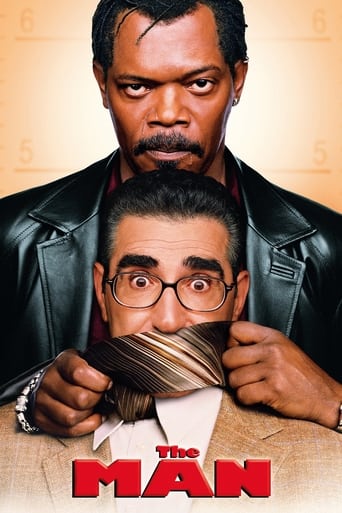

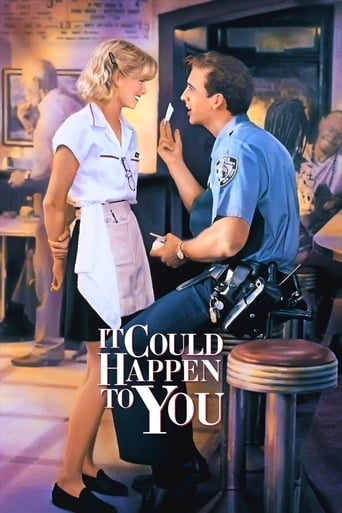
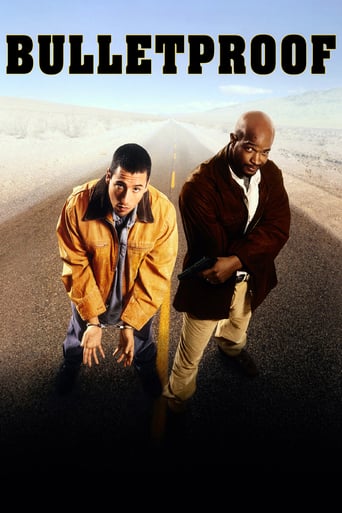
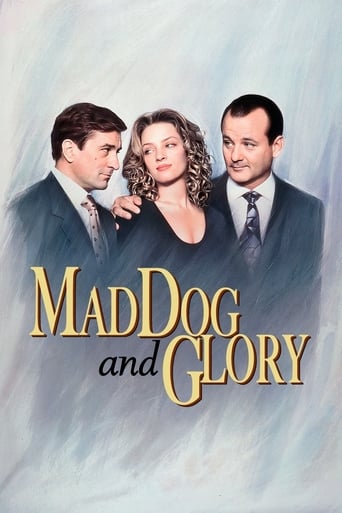
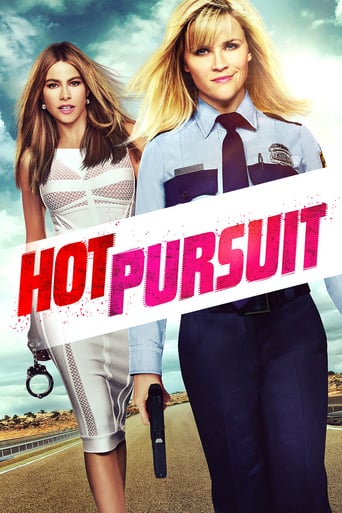
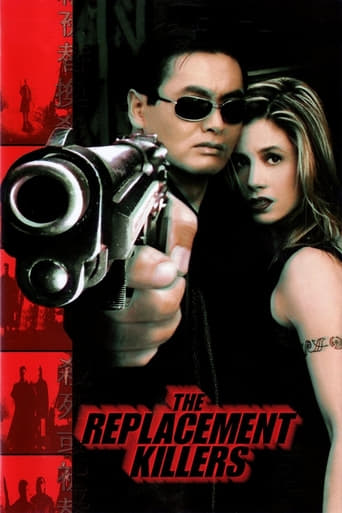
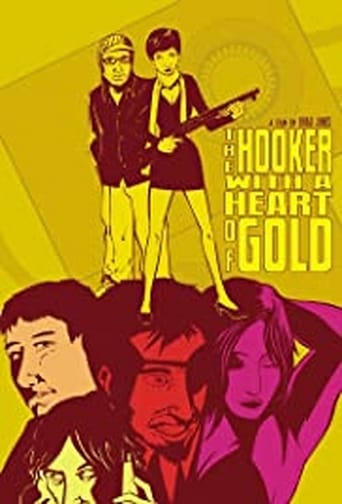
Reviews
one of films interesting only for cast. the story is a chain of conventions , the dialogs - unrealistic and entire story seems be an improvisation. the good part -the performance of Carole Lombard. the bad part - the end and Clark Gable in a role who uses to much the stereotypes. a movie interesting for the old flavor, for the romance - not remarkable but nice -, for few scenes - parts of the period sensitivity and, sure, for the atmosphere of a kind of fairy tale. far to be bad, it is confuse. its subject is absent, the bad good guy is fake but the desire of team to do a nice comedy is meritorious. against, maybe, the result.
NO MAN OF HER OWN (Paramount, 1932), directed by Wesley Ruggles, is a notable film mostly for its pairing of Clark Gable (on loan from MGM) and Carole Lombard, if not much else. Though they would have made a great team in future film projects, mainly comedies, perhaps, this was to become their only teaming together. The term of "Gable and Lombard" wouldn't become legendary until years later when they officially became a married couple in 1939. As it stands in cinema history, this is where Gable and Lombard actually met. Following the opening titles where the names and faces of its leading players are cleverly inserted into a deck of cards, the story opens at a luxurious New York City apartment of Kay Everly (Dorothy MacKaill) where of a game of poker is being held. Guests include professional cardsharp, Jerry "Babe" Stewart (Clark Gable), who "never goes back on a coin," his partners in crime, Vargas (Paul Ellis, Charlie Vane (Grant Mitchell); and the wealthy opponent, Mr. Morton (Walter Walker), president of the Riverside Bank. After Morton loses a considerable amount of money, the gentlemen depart, going their separate ways by taxi. Moments later, Babe, Vargas and Charlie return to the apartment where Babe goes over their mistakes. As Babe breaks his engagement with his mistress, Kay, Dick Collins (J. Farrell MacDonald), detective and close friend of Morton, enters the scene. Though he doesn't have enough evidence to place him under arrest, he informs Babe he's going to keep him and his gang under close surveillance. Sensing Collins wise to his racket, and that Kay could possibly betray him to the police, Babe feels it best to leave town until things blow over. At a flip of a coin, Babe takes the next train to the small town of Glendale. Upon registering at the Palace Hotel, he encounters Connie Randall (Carole Lombard), a librarian, bored enough to go away with the next traveling salesman who comes along. Though Babe is no salesman, he does sell himself to Connie, her parents (George Barbier and Elizabeth Patterson) and teenage brother, Willie (Tommy Conlan). After a social gathering at the Randall home, Babe follows Connie to Lake Inspiration where she's spending the weekend with friends. While inside her cabin, at a flip of a coin, Babe and Connie come to terms and get married. Taking up residence in New York, Babe pretends to be working at a Wall Street firm by day while continuing to host poker parties with suckers at night. As Connie notices Babe cheating at cards and learning of his crooked activities, an argument ensues, forcing Babe to take a three month leave for South America while Connie, at Babe's urging, to return home to her family. Awaiting for Babe's return, Connie receives a surprise visit from Kay informing her where Babe's actually been for three months.Unless pertaining to the Kay Everly character, the title appears to have no bearing to the plot. The original story credited to Edmund Goulding, however, was initially done as a silent movie titled HAPPINESS AHEAD (First National Pictures, 1928) starring Colleen Moore, Edmund Lowe and Lilyan Tashman in the Lombard, Gable and MacKaill roles. As interesting as titles become recycled, HAPPINESS AHEAD (First National) was not only reused for a 1934 Dick Powell musical, but Paramount reused its NO MAN OF HER OWN title (1950) for an entirely different melodrama starring Barbara Stanwyck and John Lund. Basically a dramatic tale, there are amusing elements performed to classify this as a comedy. The initial opening using a teaser certainly plays like one directed by Ernst Lubitsch. Gable shows his comedic flare through his several attempts gathering attention from the local librarian (Lombard). He also shows himself as a great ladies man when he and librarian clinch before the night is over. Though Lombard's reputation for screwball comedy wouldn't be realized until after her performance in TWENTIETH CENTURY (Columbia, 1934), her comedic talent does turns up occasionally through her sassy one-liners. Had NO MAN OF HER OWN been released a year earlier, Dorothy MacKaill might have assumed Lombard's role. A leading actress for First National Pictures (1925-31), with her most notable performance being the pre-code melodrama, SAFE IN HELL (1931), MacKaill's career by this time has reverted to forgettable projects and/or secondary roles until her retirement in 1937. With all the attention drawn towards Gable and Lombard, MacKaill's limitations during the opening and closing segments, could easily have any film buff forget she's in the movie at all. Though underscoring is sporadic, popular tunes lifted from earlier 1932 Paramount musicals, "Give Her a Kiss" (from THE PHANTOM PRESIDENT) and the title tune from LOVE ME TONIGHT, are used to good advantage for the cabin sequence between Gable and Lombard.Distributed to home video in 1986 from Kartes Home Entertainment, and later on MCA/UA video and DVD, NO MAN OF HER OWN, has turned up on cable television's American Movie Classics (1993-94) and Turner Classic Movies (TCM premiere October 13, 2008). Though not the immortal classic one could have hoped for, Gable and Lombard is all that's needed to watch, even at a flip of a coin. (*** decks of cards)
I think other reviewers heard that this was supposed to be "a screwball comedy" and ran with that idea because they didn't know what else to say. I didn't see anything light and fluffy or "screwball" about it. Perhaps "offbeat" might be a more apt characterization. Gable's interpretation of the New York gambler was interesting because something in his usual sort of charming yet manly approach was notably lacking. He possessed the irreverent and utterly confident attitude we have come to associate with his other performances, but a number of his youthful facial expressions were of a more complex and unfamiliar sort. The reserved yet knowing way he nodded howdy-do upon introduction to Lombard's mother and then her father was especially amusing, I thought. There were also the many intriguing interactions with the actress, herself, particularly with regard to the touchy subjects of marriage and stability. The oft-subtle writing in this flick made for several interesting moments and both actors were fully up to the challenge of a sensitive and intelligent interpretation of the script. It is also interesting that there was allegedly no actual romantic attachment between these two because the chemistry was already quite evident. It must have miffed a number of the more glamorous Hollywood starlets when Lombard won Gable's heart in real life. Although beautiful, she wasn't glamorous, nor was she pretentious and affected, but more like the girl next door. I read that the library scene (where Gable sent her up a ladder as an excuse to examine her legs) single-handedly started some sort of decency league in the motion picture industry. The bluenoses are always with us, aren't they, shoving their childish attitudes down the throats of the adults. Much more risqué was the scene in which Lombard's predecessor, Kay, appeared on screen in a see-through nightgown that revealed critical aspects of her anatomy, both front and back. The thirties obviously were a much less prudish time because her gentlemen friends didn't even pay much attention, at least not overtly, and scenes such as that would not appear in movies again until the sixties. We've noted a similar sensuality in other movies from that era. As a society, we keep coming back to the cultural doldrums, where they are pushing wealth or war or something else that always seems to further the interests of those in control. Unconventional times like the thirties and the sixties are few and far between. It showed in this movie.
The perks of this movie are many: a fun screwball comedy set-up involving card-sharking, two beautiful stars looking young and fantastic (you'll see why women first fell in love with Clarke Gable, and found him ideal to play Rhett Butler), the only on screen pairing of said stars, who were to become husband and wife. He would love her long after she died in a tragic plane accident on a mission to sell war bonds (i think it was). Another perk is the pre-production code raunchiness. You may notice that any movie made between 1930-1934 seems a lot racier than movies made before or after then. This is because in this short period there was no censorship of movie content, and no rules to say what you could and could not show on screen. This was left to the filmmaker's discretion. So you'll find shots of Gable in the shower, and Lombard also, though she is much less exposed. Not actual nudity, of course, but open sexiness banished from movies from 1934 till whenever the Hayes code ended - such as Gable asking Lombard the librarian to fetch him a book from the top shelf so she has to climb up the ladder and he can look at her legs.If you've never seen a screwball comedy, you might be pleasantly surprised. They're all pretty fun. Bringing up Baby with Cary Grant and Katherine Hepburn is probably the best one. They were all the rage in the 30's, and Carole Lombard was the ideal screwball heroine. To be recommended.
